

側記 Revisiting Gay Liberation: Notes on Henry D. Abelove’s Lecture at National Central University
2018-10-09
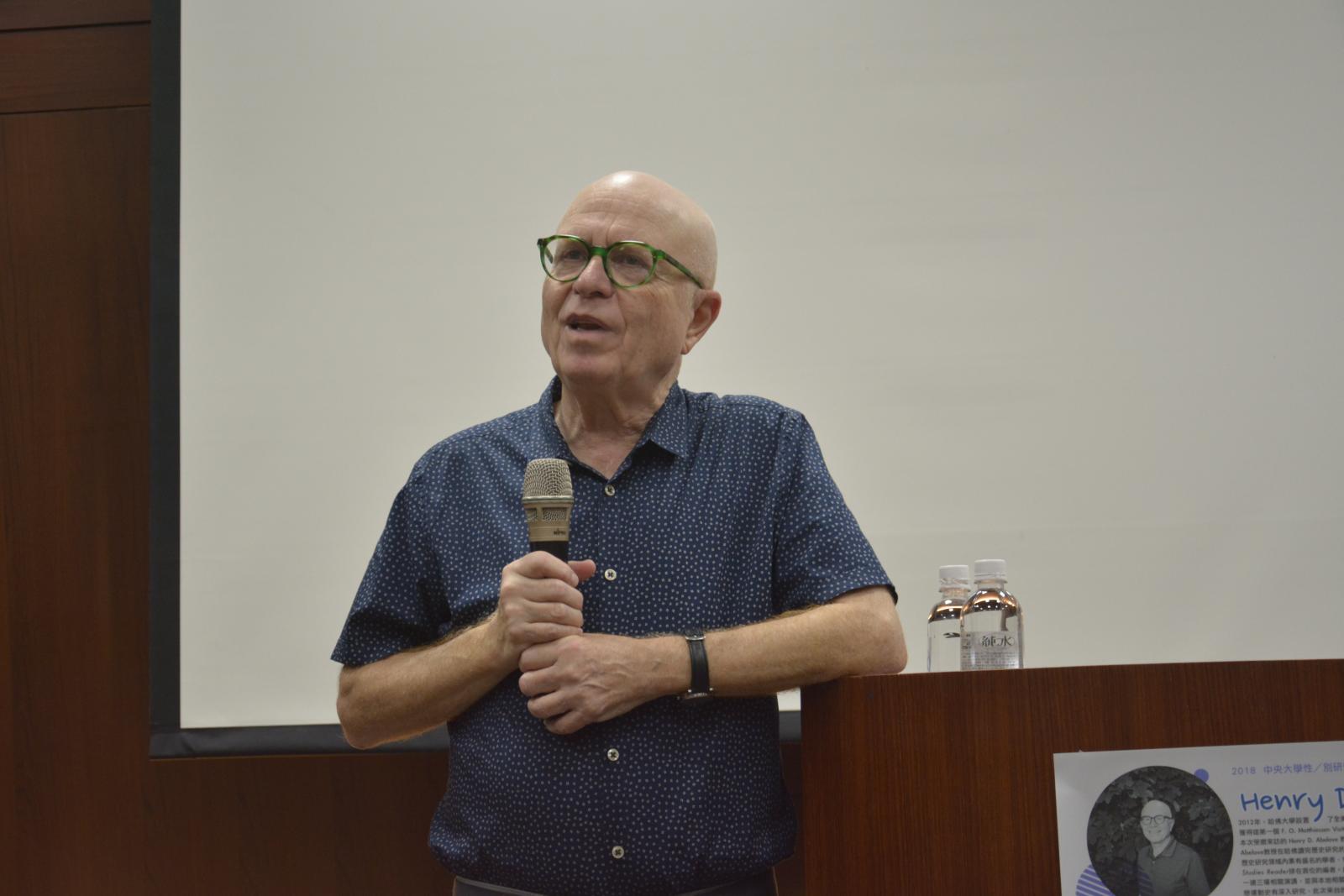
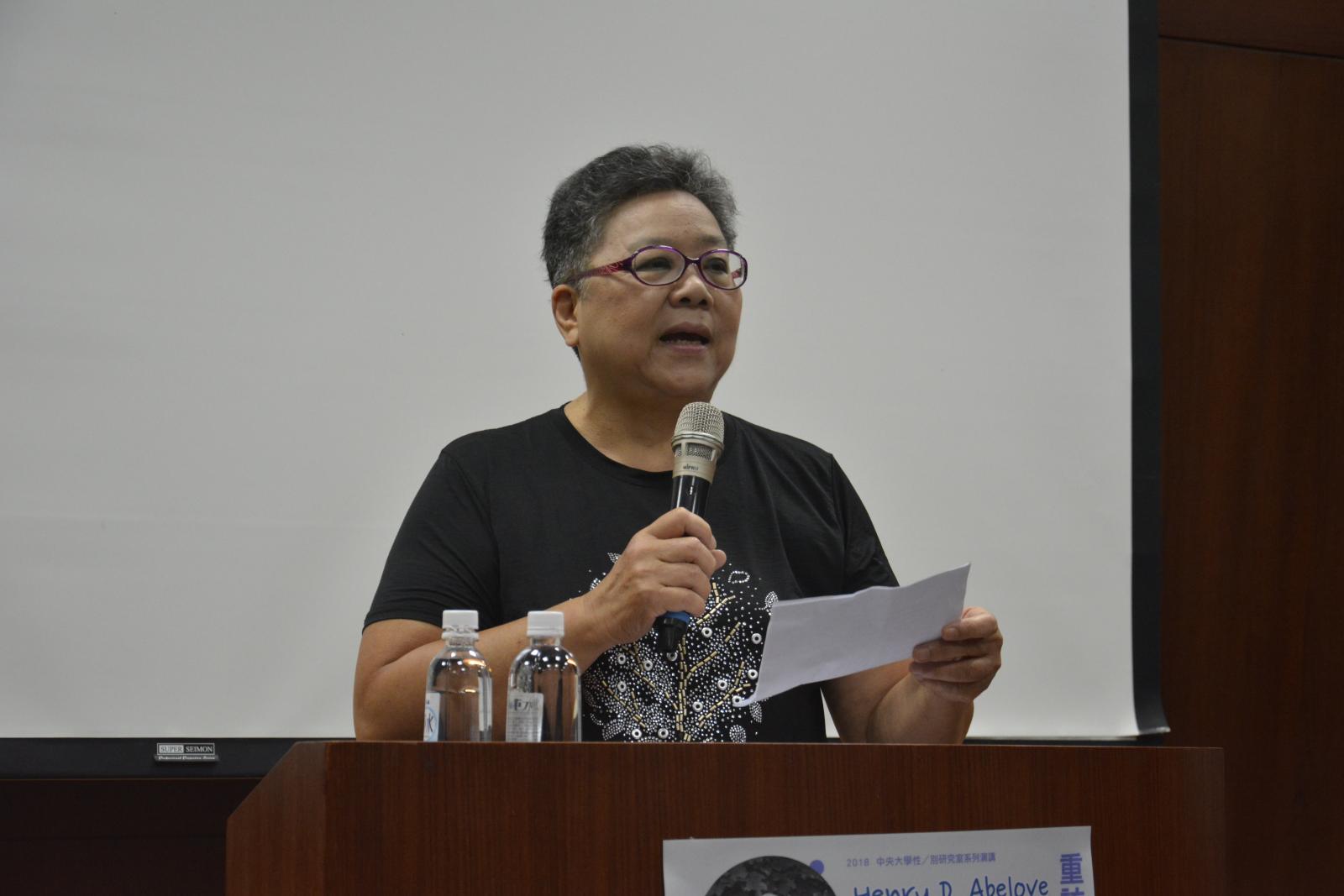
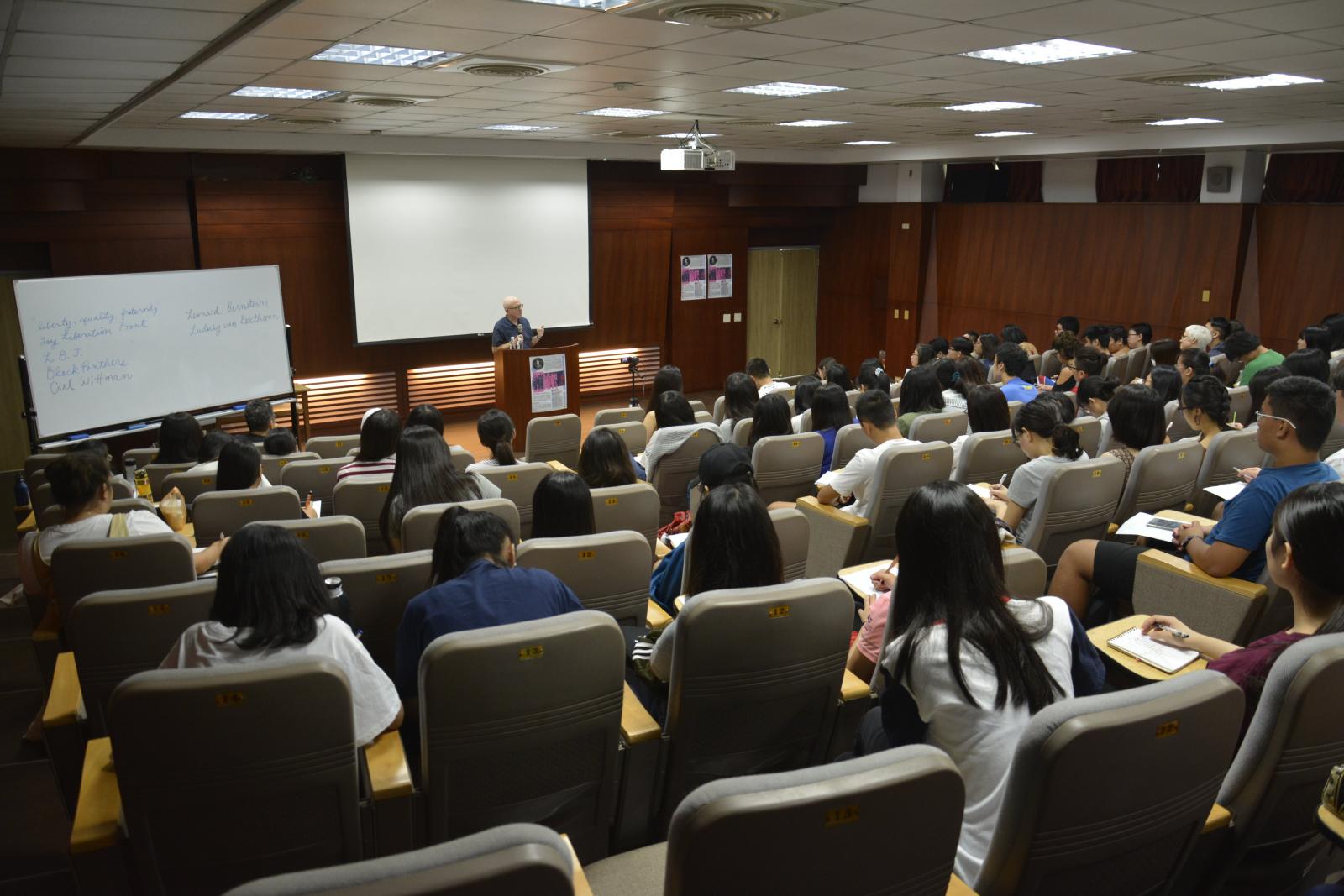
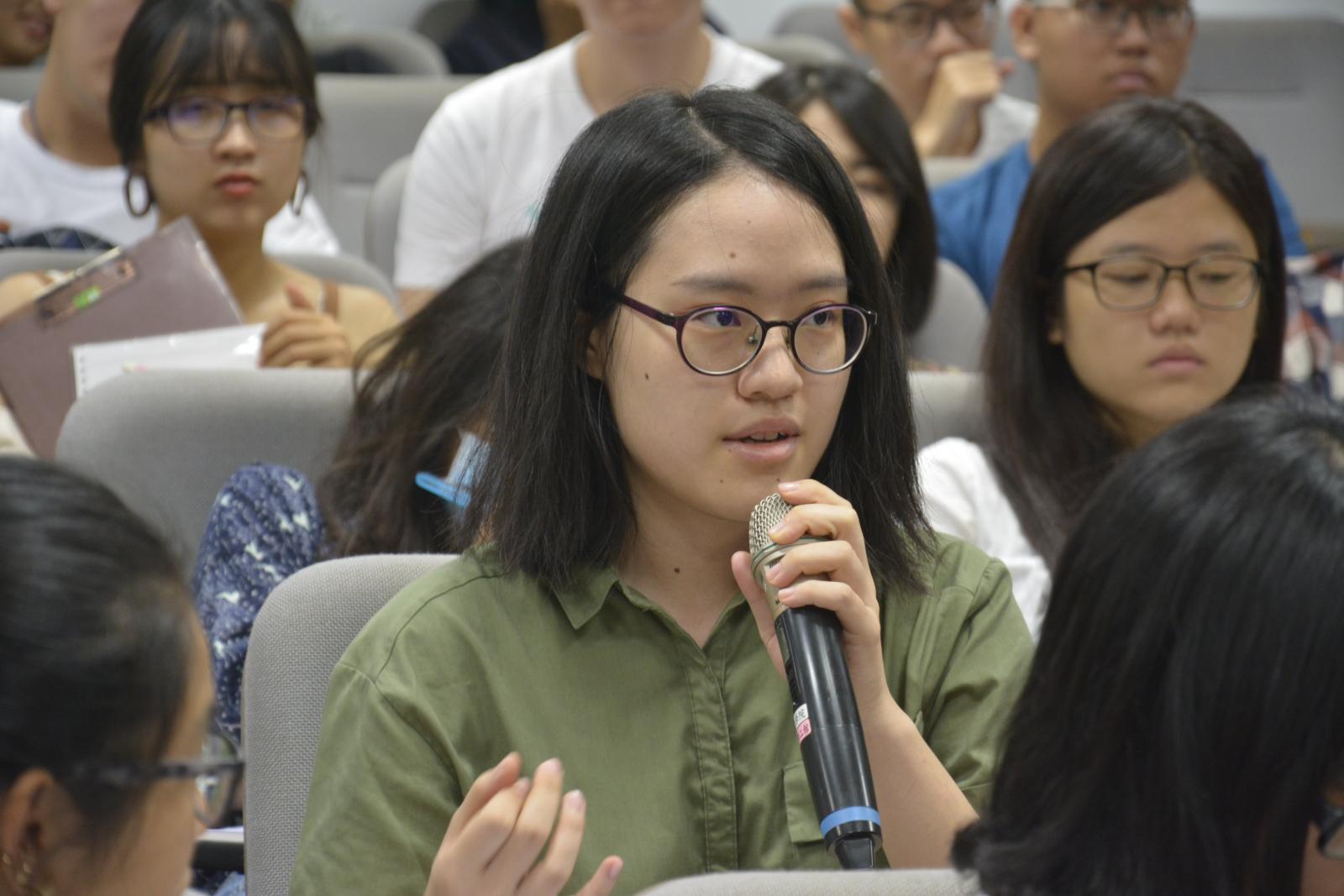
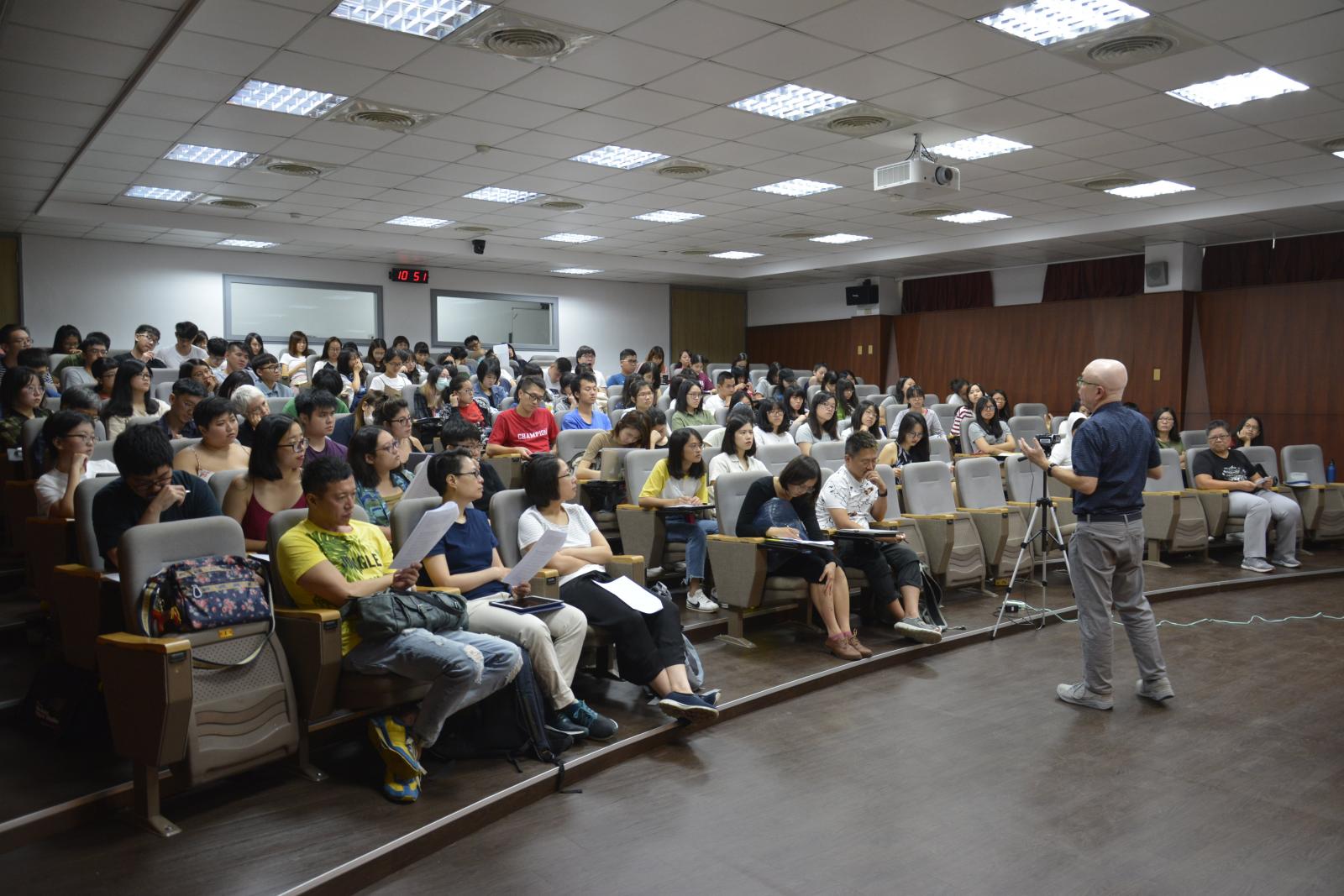
Revisiting Gay Liberation
Notes on Henry Abelove’s Lecture at National Central University, September 18th, 2018
Jui-an Rae Chou
Professor Henry Abelove is a pioneer in gay and lesbian studies and is widely known as one of the editors of the influential The Lesbian and Gay Studies Reader published in 1993. In today’s Taiwan, where debates about gay rights continue to escalate following the legalization of same-sex marriage in 2017, it is particularly timely to have a distinguished scholar such as Professor Abelove to take us back to the historical moment when gay and lesbian activism began to take shape. The gay liberation movement, whose inception is often traced back to the 1969 Stonewall Riots in New York City, has been considered as the historical and political foundation for today’s gay rights movements around the world. In this lecture, however, the picture of gay liberation that Professor Abelove delineated may have taken many of his audience by surprise.
This lecture was the first in a three-part lecture series where Professor Abelove spoke at National Central University, National Chiao Tung University, and National Taiwan Normal University on topics surrounding gay liberation in the 1960s. This first lecture focused on the intellectual genealogy and historical context of the gay liberation movement. While it is tempting to treat the liberation movement as a predecessor to today’s gay and lesbian activism, Professor Abelove emphasized that it is paramount that we scrutinize the historical circumstances before making facile connections.
Professor Abelove began the lecture by commenting that the word “gay” was much more capacious in the 1960s and 1970s than it is today: “gay” used to include both lesbians and transgender people. This expansiveness was reflected in the gay liberation movement as a whole. Professor Abelove explained that gay liberation began as an anticolonialist movement that emerged in the aftermath of the Vietnam War. He used the example of the naming of the Gay Liberation Front, which was founded in 1969 and whose name alluded to the Vietnam Liberation Front, to illustrate the anticolonialist temperament of gay liberation in the late 1960s and 1970s. This provocative inclusiveness is one of the things that sets gay liberation apart from today’s rights movements: rather than concerning themselves strictly with the rights of the gay community, liberationists pursued an ideal world where all subjugated people could be emancipated from oppression. Liberation was one struggle, as Professor Abelove underscored, not separate battles fought by isolated groups.
According to Professor Abelove, the liberationist movement was also distinct from today’s rights movements in terms of their objectives. There are fundamental differences between rights activists’ call for equality sanctioned by a democratic government and liberationists’ pursuit of liberation for all people. The Western democratic tradition seeks to achieve equality within the nation state, whereas the liberationists were suspicious that the nation state, and especially the United States as a political institution, could serve as an adequate framework to bring about revolutionary change. In this sense, recent gay rights movements are in fact a closer relative to the Western democratic tradition than gay liberation of the 1960s and 1970s.
To illustrate the liberationist departure from Western democratic ideals, Abelove invited the audience to examine three texts of both historical and literary/artistic significance. The first is a video clip of the composer and conductor Leonard Bernstein discussing Beethoven’s Ninth Symphony.[1] Professor Abelove called attention to Bernstein’s interpretation of the choral finale as a representation of fraternity, a spiritual brotherhood on which an ideal union, such as modern democracy, can be based. While Bernstein’s interpretation is symptomatic of the masculinist moralism underlying the Western democratic ideal, the two poems that Professor Abelove introduced defy this understanding by an erotic and corporeal reading of Beethoven’s music. In Frank O’Hara’s “Ode to Joy” and Adrienne Rich’s “The Ninth Symphony of Beethoven Understood At Last As a Sexual Message,” both poets see a disembodied moralist reticence in Beethoven’s Ninth Symphony, and both call for a revised fraternity that is fully embodied, sexualized, and free from patriarchal violence.
The Q&A period following Professor Abelove’s lecture saw questions about the comparison with present-day politics, as well as for clarification of historical circumstances. Professor Abelove commented that questions about “then vs. now” are commonplace at his lectures, and that he saw today’s gay rights movements as having reversed to an older tradition of democracy by asking for rights rather than for a radical revision of democratic values. Professor Josephine Ho, as the moderator of this lecture, also added that the current situation in Taiwan is a similar one: gay rights movements have become increasingly conservative with a focus on rights and law reform.
Professor Abelove’s historical analysis challenges a linear understanding of gay activism in the US as a unitary event, where the present day is located at a more advanced end in a narrative of progress. On the contrary, as Professor Abelove suggested, gay liberation movement in the 1960s and 1970s was inclusive, subversive, and incendiary—everything that today’s gay rights NGOs are not. This recognition can only be achieved through careful historical research and textual analysis, as Professor Abelove demonstrated in his lecture.
[1] For the video, see https://youtu.be/U14iJzdPtWI.
近期新聞 Recent News


